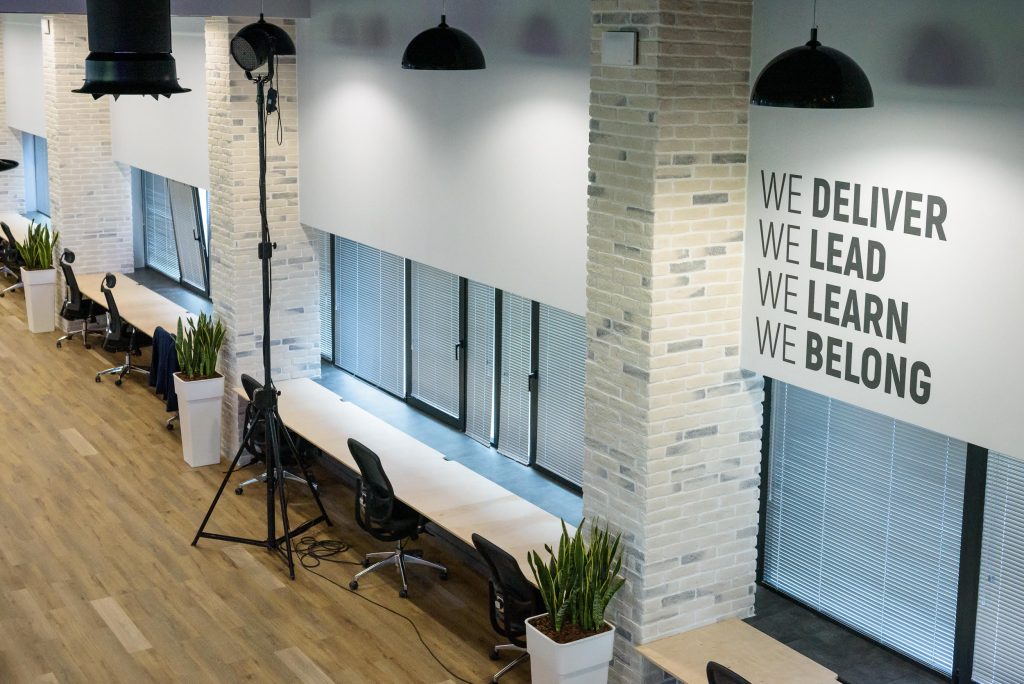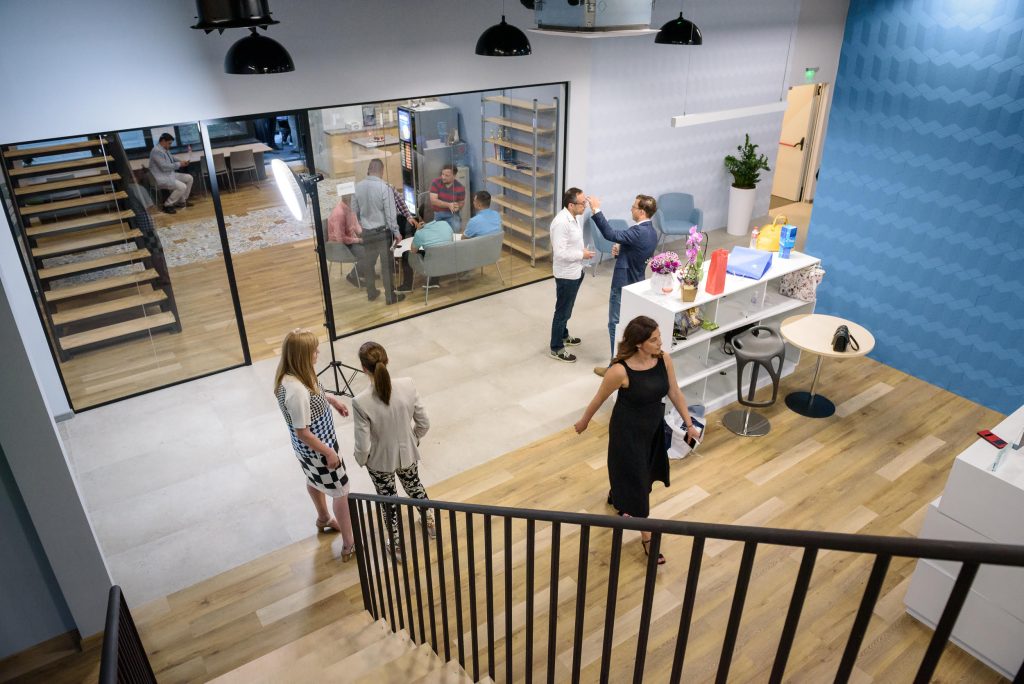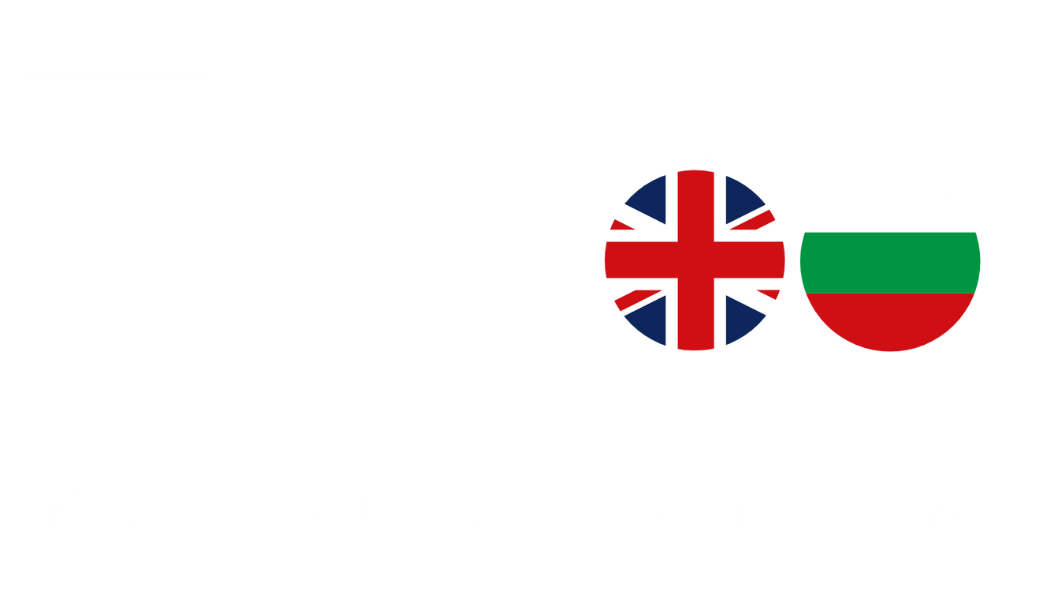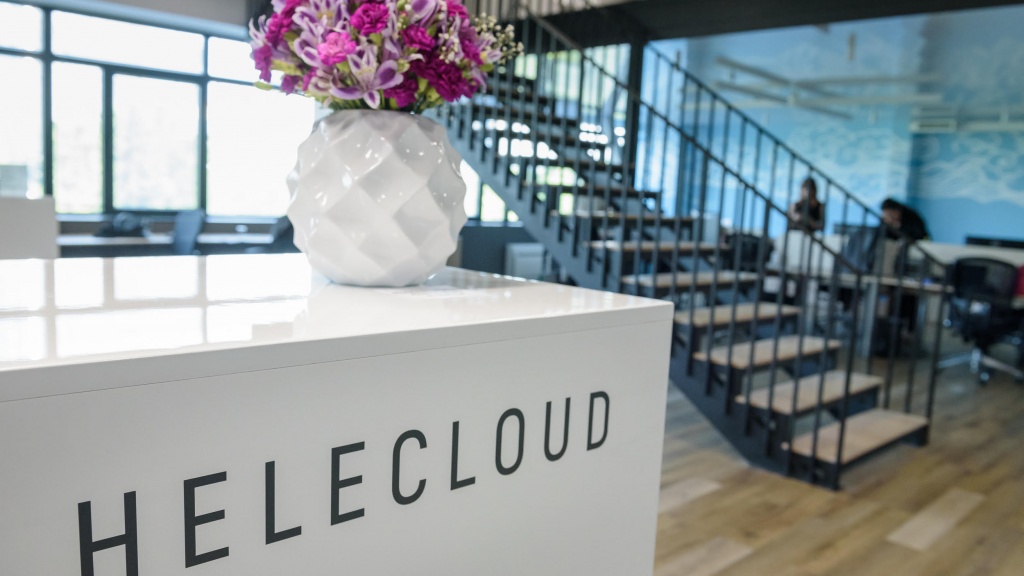Core business
I imagine everyone knows about the cloud revolution in IT. The concept of businesses building and running their own data centres has become very outdated. It is too expensive and too slow. Companies now want to move all their IT to the Cloud and we help them do this. There are only really a couple of cloud data players like AWS, Microsoft Azure and Google, and customers come to us for help.

We’re lucky enough to have three Bulgarian board members. Dob Todorov, our CEO, has lived in the UK for about 15 years, and Alex Kolev, HeleCloud Co-founder and CFO and Stefan Bumov, Co-founder and COO are also from Bulgaria.
Bulgaria has a huge talent pool for the type of skills that we are looking for. Our business is reliant on Amazon Web Services, and since AWS themselves do not have a presence in Sofia, we thought it would be a good idea to recruit talent here and use it for the deployment of an international project.
Three key services
The capability that we offer, is first as a consultant providing advice to companies on their cloud strategy. Then secondly we roll up our sleeves and we get involved in the engineering side by moving applications or setting up applications in the Cloud. Then the third capability that we can offer is AWS managed services. Just like in the old world of IT, once you’ve moved all your infrastructure to public cloud, it still needs looking after. This is a service we offer to our customers, a 24×7 managed service.
Key capacity in Bulgaria
Bulgaria is where 60% of our main capability is based and all of our managed services are based in Sofia. We also have offices in the City of London, right next to AWS so we can work with them very closely. Last year we acquired a company in the Netherlands, in the Hague, called OlinData which is another AWS partner. So now we have a base in Benelux, and we’re looking at expanding into other European countries like Spain, Germany and the Nordics. The engine room where a lot of the work is done is in Sofia.
Bulgarian skills
One of the key factors that attracted us to Bulgaria are the skills sets that you find here. Sofia has a number of very good universities specializing in computer science and technical engineering. They produce some really good candidates, many of whom are bilingual and even tri-lingual. In addition to Bulgarian, they all speak perfect English, and in many cases German which is really important for international business. We’ve found that the work ethic in Bulgaria is “work hard, play hard”, but the productivity levels are excellent. There is still the cost factor for a number of reasons. Taxation is more favourable in Bulgaria, the cost of living is lower than in London. So we’re able to employ really high-quality people at about two thirds of the price of the Netherlands or the UK.

We are now at over 110 people and we shall be trying to double that number over the next 12 months. About 60% work in Bulgaria and 40% split between the Netherlands and the UK. We have been able to recruit at a very fast rate and expand, something we would not have been able to do in the UK.
Another thing I would add is, that we have built a brilliant back office, such as HR and finance, in Bulgaria and all of those functions, that we would not have been able to afford to such a high level of capability outside Bulgaria. Also, there is a concentration of skills in Sofia that you would not find in other countries. Sofia has become a magnet for a lot of major companies in the past ten years or so.
The engineering capability is based in Sofia, but we deliver projects internationally – America, Dubai, Israel, UK, France, we can work anywhere in the world.
Innovation
A lot of what we do is groundbreaking in IT and in the Cloud and developing intellectual property around it. It is a very important part of the value of our business and it is important experience for your teams as well. We have innovated better ways for our customers to deploy technology in the Cloud as code. Whereas before it all had to be manually programmed, we have developed code whereby you just press a button and deploy Infrastructure as Code. We have also done a lot of work around our managed services business. That is all about automation, managing your IT estate without lots of people being physically involved. The software and systems recognise problems and in many cases solve them automatically.
People-centric success
We are a service business and a people business. It is a good business and a rising tide, but we have put a lot of emphasis on the quality of the people we hire, their training and qualifications. All of our consultants are AWS solution architects or above. We train everyone for three months before they are let loose on our customers. Dob Todorov, our CEO, his catch phrase is “happy customers”. This approach has served us well, and a lot of our business comes from recommendations.
Emilia Tzekova, Head of Marketing
I joined the company in 2016, and I was the second employee in the Sofia team. It is amazing how the local team has grown and how much we have achieved. It is not just a matter of training, it is about being part of a community, and the local team does a lot to contribute to the AWS community in Bulgaria through organising knowledge-sharing presentations. It is a source of huge pride to be the keeper of the knowledge and to have first-hand technology insight. The collaboration with Sofia University aims to develop curriculum and lectures, enabling them to have access to the AWS platform which is very well-received by academia and the university.

BBBA and DIT
When it comes to collaboration with BBBA, it is foremost in terms of local market awareness. They have helped us make the EU, UK and local audiences be aware of the capabilities and local talent. Talent is the most important thing. BBBA does a great job in supporting the local community and sharing best practices of UK companies in Bulgaria and Bulgarian companies with a presence in the UK. This is an immense benefit for the community and business. They also help strengthen the community in all events, networking and getting to know the people is a great support. We are also very happy to attend Embassy meetings and know that the Embassy is supporting local business.
We have generated real business through the BBBA connection. It is much more than just a nice club to be part of. There are organisations that want to set up in Bulgaria and they have come to us through the BBBA, met our people and have given us projects to deliver. One of these was HashiCorp, and they wanted to move to Sofia. We were able to build a team for them over twelve months, and they took our team back in house. Through the BBBA connection we formed a good partnership. There are tangible business benefits.

